A Subtropical climate challenges its residents with sweltering heat and stifling humidity, making Portable AC Units for Homeowners more than a luxury—it’s necessary for comfort and health. While traditional air conditioning systems, such as central air or window units, are standard solutions, portable AC units have emerged as a versatile alternative, offering unique advantages. This buying guide delves into everything you need to know about choosing, using, and maintaining portable AC units, ensuring you make an informed decision that enhances your living environment. We’ll explore how these units work, their benefits, and practical tips that helps to specific climate challenges.
Table of Contents
What is a Portable AC Unit?
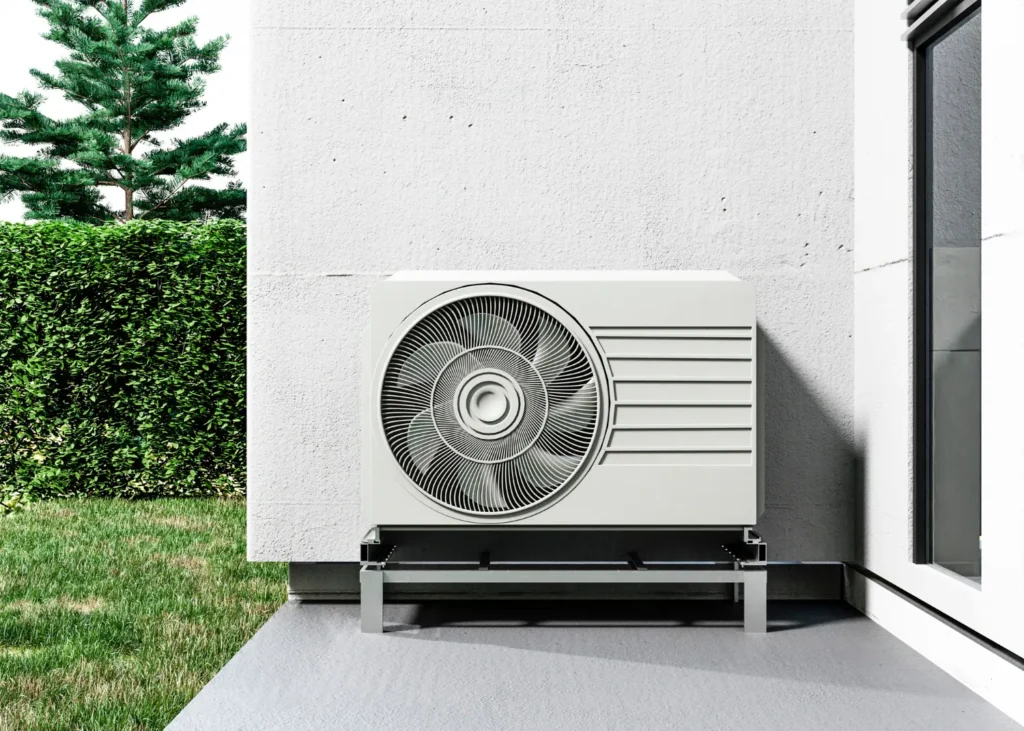
Portable air conditioners are self-contained mobile air conditioning units that can be moved from one room to another to provide targeted cooling where it’s most needed. Unlike fixed systems, these units require no permanent installation, making them ideal for renters or homeowners who prefer a flexible and temporary cooling solution. Here’s a closer look at the essential components that make up a vented portable AC:
- Compressor: The heart of the air conditioner that compresses and circulates the refrigerant necessary for heat exchange.
- Condenser and Evaporator Coils: These coils either release or absorb heat as air flows over them, facilitated by the refrigerant’s properties.
- Fan: Circulates air over the evaporator to cool the room and across the condenser to expel heat outside through the exhaust hose.
- Thermostat and Control System: Allows users to set and maintain the desired temperature within a room.
Understanding these components is crucial for optimizing the use of a portable AC unit, especially in a challenging environment, where efficiency and effectiveness in cooling are paramount.
How Portable Air Conditioner Units Work
Portable air conditioners function on the same basic refrigeration-cycle principle as their larger counterparts but with a design optimized for mobility and convenience. Understanding how these units operate can help you maximize their efficiency and effectiveness, particularly in intense summer heat. Here’s a breakdown of the operational steps:
- Air Intake: Room air is drawn into the unit and over cold evaporator coils. This process not only cools the air but also removes moisture, which helps decrease the room’s humidity.
- Cooling Process: Inside the portable AC, the air is chilled as it passes over refrigerant coils. The refrigerant absorbs heat from the air, cooling it before recirculating it into the room.
- Heat Expulsion: The absorbed heat transforms the refrigerant from a liquid to a gas. The portable AC’s compressor then compresses the refrigerant, intensifying its heat. This hot gas moves to the condenser, where it releases its heat to the outside through the exhaust hose.
- Ventilation: To ensure efficiency, the heated air must be vented outside, typically through an exhaust hose window. Proper ventilation is crucial to prevent warm air from flowing back into the room, which could undermine the cooling process.
- Condensation Handling: During the cooling process, moisture from the air condenses on the cold coils. Most portable AC units are equipped with a tank to collect this water. However, some models use self-evaporative technology that expels most of the moisture with the exhaust air, reducing the need for frequent emptying of the condensate tank.
By leveraging these operations, portable AC units can significantly improve indoor comfort by lowering temperatures and reducing humidity levels, making them ideal for climate.
Types of Portable Air Conditioning Units
Portable air conditioning units come in various designs and configurations, each tailored to meet specific environmental needs and personal preferences.
Single Hose and Dual Hose Mobile AC
Single-hose and dual-hose models represent the two main configurations of portable air conditioners, each with distinct operational mechanisms and suited for different cooling needs. Single-hose models are more straightforward and familiar, using a single hose to exhaust hot air from the room. Dual hose models, on the other hand, utilize two separate hoses, one for expelling hot air and the other for drawing in outdoor air to be cooled, leading to improved efficiency and faster cooling in larger spaces. Understanding the differences between these models is crucial for selecting the suitable portable AC unit that matches your specific cooling requirements.
Single Hose Vs Dual Hose Models: Pros and Cons
Single Hose Units:
- Pros: Single-hose units are generally more compact and cheaper. They are also easier to install and ideal for small rooms.
- Cons: They can create negative pressure in a room, pulling in warm air from outside or other non-cooled areas, which can reduce their efficiency.
Dual Hose Units:
- Pros: These models have separate intake and exhaust hoses, improving the airflow and making them more efficient at cooling. They do not create negative pressure and can cool larger spaces more effectively.
- Cons: Dual hose units are larger, more expensive, and use more energy.
Ventless Portable Air Conditioners: How Do They Differ?
Ventless portable air conditioners, or evaporative coolers, use a different cooling method based on water evaporation. They are best suited to hot, dry climates. Since they do not use refrigerants, they are more energy-efficient and environmentally friendly. However, in humid environments, their effectiveness is significantly reduced as the high moisture content in the air limits the evaporation process.
Where Homeowners Can Use Portable AC Units?
Portable AC units are incredibly versatile, making them suitable for a variety of residential settings:
Apartments and Condos
In apartment settings or condos where installing traditional AC systems may be impractical or restricted by building codes, portable AC units offer a practical alternative without needing permanent installation.
Single Rooms
Ideal for cooling specific areas like bedrooms or home offices, portable AC units can be easily moved where needed. They provide focused cooling without wasting energy on unoccupied spaces.
Temporary Cooling
During renovations or in rental properties where temporary or seasonal cooling solutions are necessary, portable AC units are an excellent choice due to their mobility and ease of installation.
Choosing the Right Portable AC System for Your Home
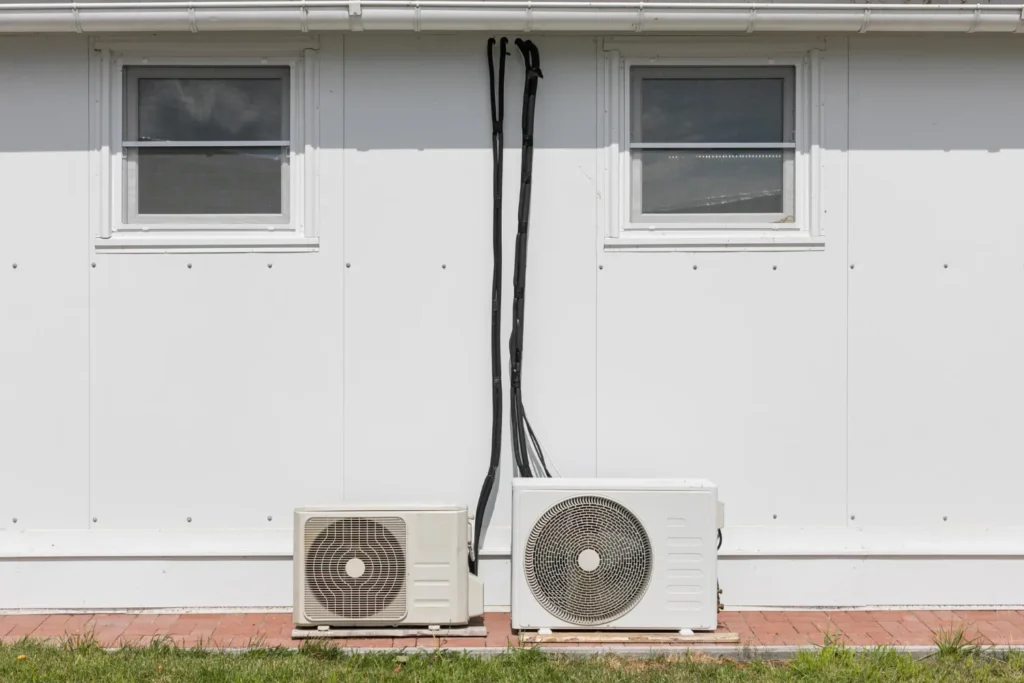
Selecting the correct portable AC unit involves assessing your needs based on the space size and the typical environmental conditions. Measuring the area to be cooled in square feet and matching this with the appropriate BTU (British Thermal Units) rating ensures efficient cooling without energy wastage. For instance, a room measuring 300 square feet would require a portable AC with at least 8,000 BTUs to cool effectively.
Key Features to Look for in Portable AC Units
Certain features can enhance convenience, efficiency, and overall performance when shopping for a portable air conditioner. Homeowners should consider the following essential features:
Adjustable Settings and Digital Controls
Look for units with easy-to-use digital controls that adjust temperature settings, fan speed, and cooling modes to suit your comfort levels. Programmable timers and sleep features can also help conserve energy by automatically adjusting the settings at different times of the day or night.
Built-in Dehumidifiers and Air Purifiers
In humid climate, a portable AC with a built-in dehumidifier can provide additional comfort by removing moisture from the air. Some models also include air purifiers with HEPA filters to reduce airborne particles and allergens, improving indoor air quality.
Intelligent Features: Wi-Fi Connectivity and App Control
Advanced portable AC units offer intelligent connectivity features like Wi-Fi and compatibility with home automation systems. These features allow you to control your unit remotely via smartphone apps, providing the convenience of adjusting settings even when you’re away from home.
Installation Tips for Compact AC Units
Proper installation is crucial for maximizing the efficiency of portable AC units. Here are some tips to ensure optimal performance:
Choosing the Best Location
Select a location near a window and an electrical outlet. Ensure the area allows for adequate airflow and avoid placing the unit where furniture or other objects can obstruct the air intake and exhaust.
Step-by-Step Installation Guide for Homeowners
- Step 1: Attach the exhaust hose to the unit and direct it towards the window.
- Step 2: Use the window kit provided to seal the gap in the window where the hose exits. This prevents warm air from re-entering the room.
- Step 3: Ensure the unit is level so the internal drainage system works correctly.
- Step 4: Plug in the unit and turn it on, checking all functions to ensure they work correctly.
Maintenance and Care of Portable AC Units
Regular maintenance extends the lifespan and efficiency of your portable air conditioner. Here’s how to keep your unit in top condition:
Routine Cleaning and Care
Clean or replace air filters regularly to prevent dust and debris buildup, which can impede airflow and cooling efficiency. Check the condenser coils and evaporator for dirt or ice buildup and clean them as needed.
How to Effectively Maintain the Filters, Hoses, and Condenser Coils
- Filters: Clean or replace them every two weeks during high usage periods.
- Hoses: Inspect for leaks or kinks and ensure they are securely connected.
- Condenser Coils: Gently vacuum or brush the coils to remove dust buildup at least once a season.
Common Problems and Troubleshooting Portable AC Units
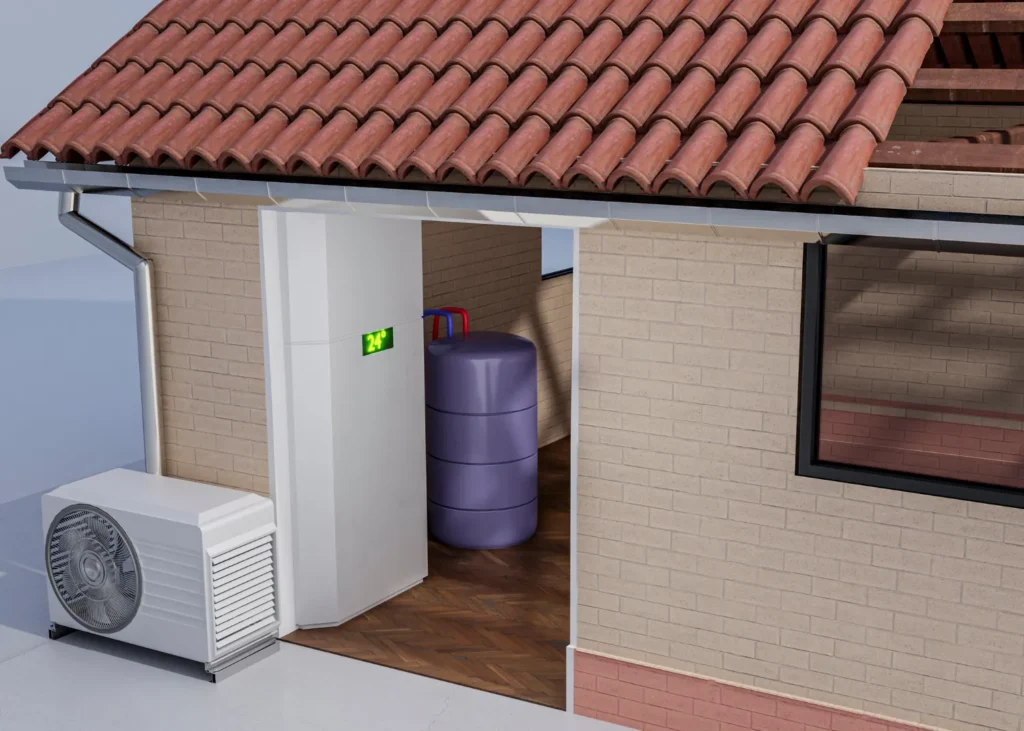
Even well-maintained portable AC units can encounter problems. Here are common issues and their troubleshooting steps:
Diagnosing Issues with Cooling Efficiency
If your unit is not cooling effectively, check for blocked air filters, incorrect settings, or leaks in the window seal. Additionally, ensure the room size does not exceed the unit’s cooling capacity.
Quick Fixes for Common Operational Problems
- Unit Not Turning On: Check the power cord and outlet for issues, and ensure a full water tank doesn’t trigger the unit’s internal safety switch.
- Excessive Noise: Tighten any loose parts and ensure the unit is level, as an uneven placement can cause vibration and noise.
- Ice Buildup: If ice has formed on the coils, reduce the thermostat setting or allow the unit to defrost.
By addressing these common issues promptly, homeowners can ensure their portable AC continues to provide efficient and effective cooling.
Energy Efficiency Tips for Portable AC Units
Maximizing the energy efficiency of your portable air conditioner not only helps reduce your environmental footprint but also leads to significant savings on your energy bills. Here are some strategies to ensure that your portable AC operates at peak efficiency:
How to Maximize Efficiency and Minimize Costs
- Proper Sizing: It is crucial to choose the right ac unit with the appropriate BTU rating for your space. An oversized unit will cool quickly but may not effectively remove humidity. In contrast, an undersized unit will need help to cool adequately, running continuously and using more energy.
- Optimal Placement: Place your portable AC away from direct sunlight and heat sources. This will help the unit operate more efficiently, as it won’t have to work as hard to cool the air.
- Regular Maintenance: Keep the air filters clean and ensure the air intake and exhaust are not obstructed. Regular cleaning of the condenser coils and checking for proper drainage can also enhance efficiency.
Best Practices for Eco-Friendly Cooling
- Use of Timers and Thermostats: Utilize programmable timers and adjustable thermostats to control the operation of your portable AC. Setting the unit to cool only when necessary can significantly reduce energy consumption.
- Supplement with Fans: Ceiling or oscillating fans, in conjunction with your portable AC, can distribute cooled air more effectively, allowing you to raise the thermostat by a few degrees without reducing comfort levels.
- Seal and Insulate: Ensure the room is adequately sealed and insulated, particularly around windows and doors with the portable AC vents outside. This prevents cool air from escaping and hot air from infiltrating.
Cost Comparison Of Portable Air Conditioners
Understanding the cost implications of choosing a portable air conditioner over other cooling systems can help you make a well-informed decision based on your specific needs and budget.
Initial Cost and Installation Expenses
Portable AC units generally have lower initial costs than traditional systems like central air conditioning. The lack of installation expenses, such as ductwork or professional setup, makes portable ACs an economical option upfront.
Long-term Savings and Operational Costs
While portable AC units are less expensive initially, their operational costs can be higher compared to more efficient systems like mini-splits or central air, especially if used as the primary cooling source in multiple rooms. However, their ability to cool specific areas on demand can result in savings by reducing the need to cool unused spaces.
Compatibility of Portable AC Units
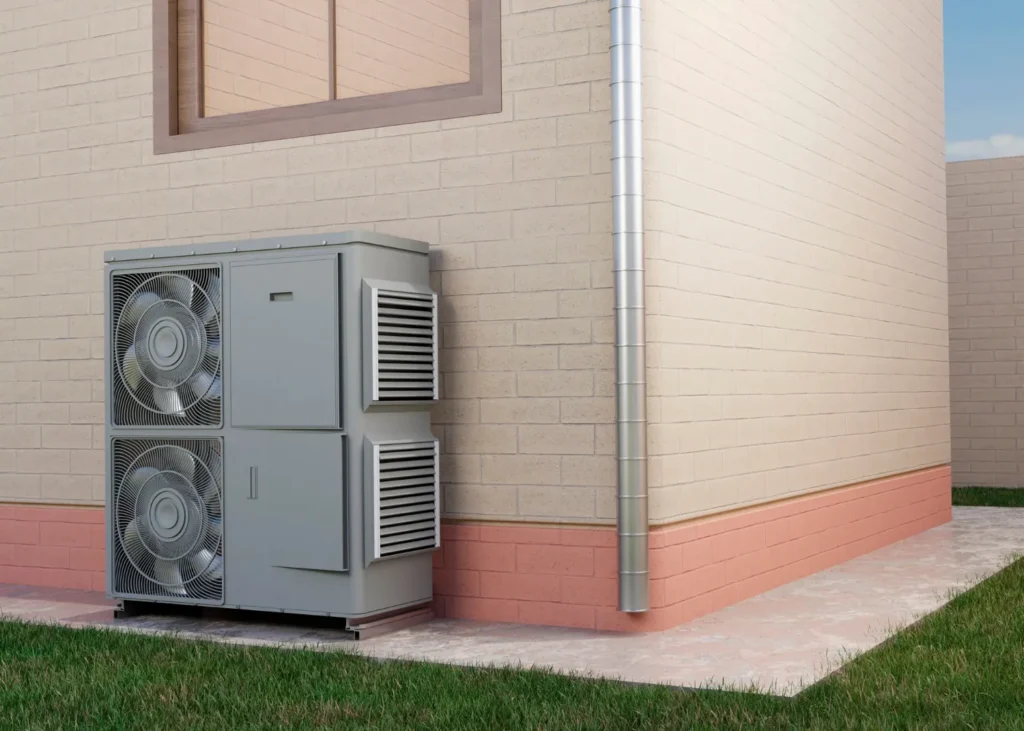
Adapting portable AC units to cope effectively with heat and humidity involves understanding their capabilities and limitations in this demanding climate.
Tailoring Your AC Usage to Handle Humidity and Heat Waves
Portable AC units that include dehumidifying functions suit the climate. Operating these units during the hottest parts of the day and using other cooling methods during cooler periods can optimize comfort and efficiency.
Seasonal Tips for Optimal Use of Portable AC Units
During the peak summer, ensure your portable AC’s filters and coils are clean, and the unit functions optimally. Consider using blackout curtains to reduce heat gain through windows and setting your portable AC to “dry” mode to tackle high humidity levels effectively.
Safety Considerations for Portable Cooling System
Ensuring the safe operation of portable air conditioners is crucial, especially when considering the setup in residential environments.
Ensuring Proper Ventilation to Avoid Health Risks
Proper ventilation is essential when using a portable AC to prevent the buildup of condensation and mold. Ensure the exhaust system is correctly installed, and the room occasionally airs to maintain good air quality.
Electrical Safety and Best Practices
Always connect your portable AC unit directly to a wall outlet instead of using an extension cord. Check the unit’s electrical requirements to ensure your home’s wiring compatibility and prevent overloading and potential fire hazards.
The Future of Cooling Technology in Portable AC
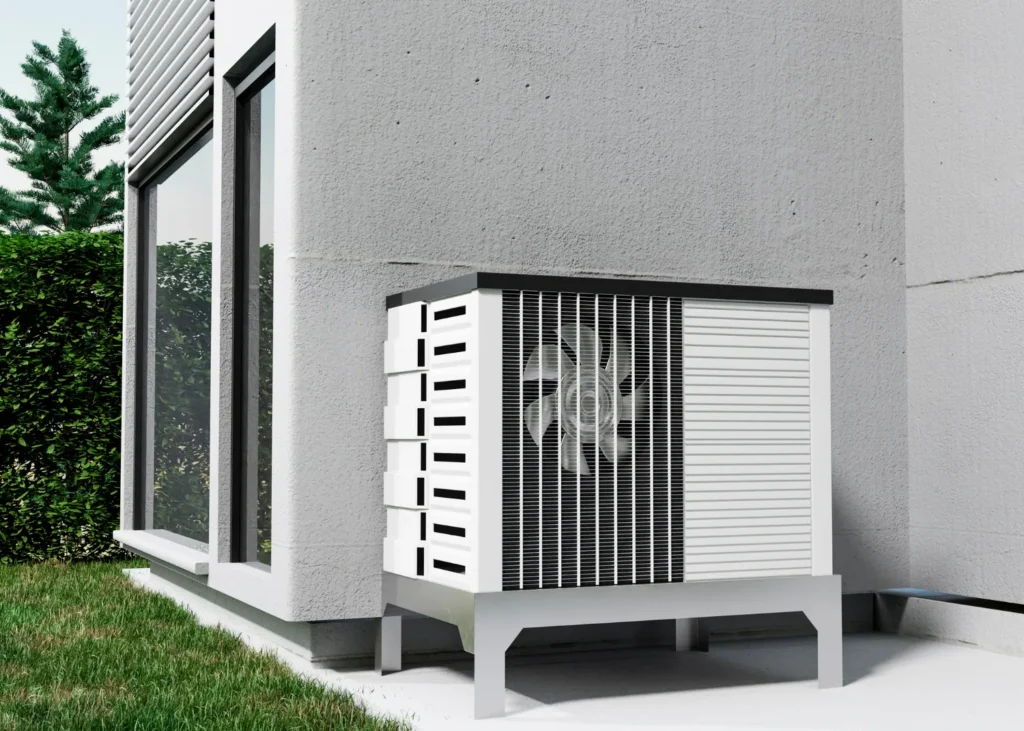
Technological advancements continue to shape the development of portable air conditioning units, with new features designed to improve efficiency and user experience.
Innovations on the Horizon for Portable Air Conditioning
Emerging technologies in smart home integration allow for more precise control over cooling systems, while developments in refrigerants and compressors aim to increase energy efficiency and reduce environmental impact.
Trends in Smart Home Integration and Eco-Friendly Features
Future portable AC units will likely incorporate AI-driven controls for optimized performance and eco-friendly designs that use less energy and refrigerants with lower global warming potential (GWP), aligning with global environmental goals.
Comparison of Portable Air Conditioning Vs Other Cooling Systems
When considering cooling solutions for your home, evaluating all available options is crucial to finding the system that best meets your needs. Portable AC units are just one of several types of air conditioners available on the market. Here’s how they compare to other standard systems like window units, central air conditioning, and ductless mini-split systems.
Portable Vs Window AC Units:
Portable air conditioners offer mobility and ease of installation, allowing you to move the unit from room to room as needed. This flexibility is a significant advantage over window AC units installed in a fixed location. However, window units are generally more energy-efficient than portable models because they have a more stable installation that doesn’t leak air like portable units. Window units also tend to have higher cooling capacities and can be less noisy.
Portable Vs Central Air Conditioning:
Central air conditioning systems are ideal for cooling multiple rooms or an entire house. They are more efficient on a larger scale and can add to a home’s overall value. While the upfront and installation costs are much higher than those of a portable AC, the operational costs can be lower over time due to better energy efficiency. Central air also offers a more aesthetic solution since most components are hidden, unlike the somewhat obtrusive presence of portable units.
Portable Vs Ductless Mini-Split Systems:
Ductless mini-split systems offer a balance between portable and central air systems. They require minimal installation with no ductwork and provide efficient, quiet cooling and heating to specific zones in your home. While mini-splits have higher initial costs than portable AC units, they offer superior energy efficiency and have lower long-term operating costs. Like portable units, they can also be used for specific areas with a more permanent setup and without occupying floor space.
Pros and Cons of Portable Air Conditioner
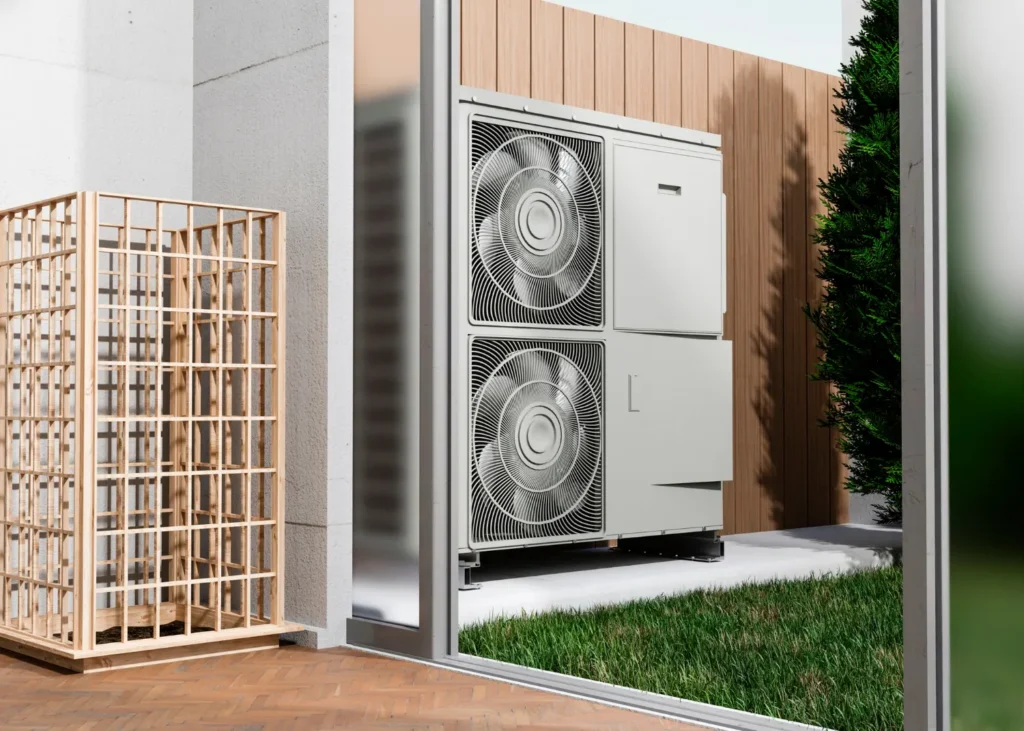
Portable air conditioners are popular for many homeowners due to their convenience and flexibility. However, like any cooling system, they have advantages and disadvantages that should be considered before making a purchase.
Pros:
Flexibility and Portability:
Portable AC units can be moved from one room to another, targeting cooling where needed most. This mobility is particularly advantageous in homes where certain areas only require occasional cooling.
Easy Installation:
These units do not require professional installation, which can save money and time. Setting up a portable air conditioner typically involves just mounting the exhaust hose to a nearby window and plugging in the unit.
Cost-Effective:
Portable air conditioners are generally cheaper than permanent systems in terms of initial investment and installation costs.
Dual Functionality:
Many portable ACs come with built-in dehumidifiers, which can help manage humidity levels in your home and make the environment more comfortable.
Ideal for Renters:
Since no complex installation or alterations to the property are required, portable ACs are perfect for renters or individuals in temporary living situations.
Cons:
Less Energy-Efficient:
Portable air conditioners can be less energy-efficient than other types of AC systems. Due to their design and frequent on-and-off cycling, they often use more electricity to cool smaller areas.
Noise Levels:
The compact nature of portable AC units often means all components are housed together within one unit, which can generate considerable noise during operation.
Space Utilization:
Despite being portable, these units can take up valuable floor space, which might be inconvenient in smaller rooms or crowded areas.
Ventilation Requirements:
Portable ACs require a window to vent the hot exhaust air, which can be a security concern and may compromise the room’s aesthetics.
Maintenance:
They require regular maintenance, including draining condensation tanks and cleaning filters, which might need to be more convenient for some users.
Conclusion
Selecting the ideal portable AC unit for your home requires careful consideration of several factors, including the unit’s features, the local climate’s demands, and your specific cooling needs. By comprehensively evaluating these elements, homeowners can make informed decisions that improve indoor comfort and optimize energy consumption and operational costs. Implementing the right maintenance strategies further ensures the longevity and efficiency of the unit, making portable air conditioners a practical and sustainable choice for battling heat. With the correct approach, portable ACs can provide a highly effective and flexible cooling solution that adapts well to both the environmental conditions and the unique requirements of your homes.
FAQs
What are the best portable AC units for the hot weather?
The best portable AC units for hot climates typically feature high BTU ratings to manage heat efficiently and features like dehumidifiers to handle high humidity levels. Models from brands like Honeywell and LG, particularly those with dual-hose systems and energy-efficient settings, are highly recommended.
How much does a portable AC unit cost?
The cost of portable AC units can vary widely based on the unit’s features and cooling capacity. Prices generally range from $250 for basic models to over $700 for high-end units with advanced features such as remote cools control access, programmable timers, and higher BTU ratings.
What is the ideal BTU for a portable AC unit?
The ideal BTU for a portable AC unit depends on the room size it needs to cool. As a general guideline, you’ll need approximately 20 BTUs per square foot of living space. For example, a 500-square-foot room would require a 10,000 BTU portable air conditioner.
What is the noise level of a typical portable AC unit?
The noise level of a typical portable AC unit usually ranges from 50 to 60 decibels, about the same as a conversation at home or a quiet office. Models designed for quiet operation can run at lower decibels, making them suitable for bedrooms or study areas.
How does the humidity affect the performance of portable AC units?
High humidity can impact the efficiency of portable AC units, particularly those without built-in dehumidifiers. Units that can cool and dehumidify are better suited for maintaining comfort and preventing moisture-related issues such as mold growth.




